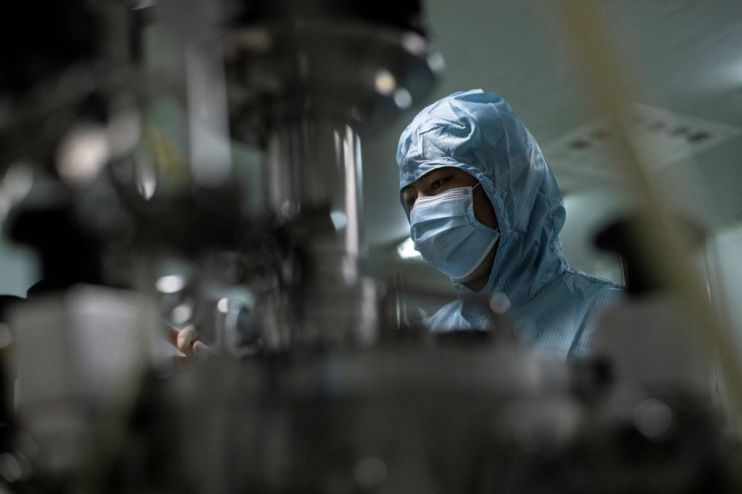Oxford coronavirus vaccine safe and triggers ‘strong’ immune response, study finds

The University of Oxford’s coronavirus vaccine has been deemed safe and induces a “strong response” from the immune system, a new study has found.
An initial trial of 1,077 people showed that the injection produced antibodies and white blood cells in patients.
The vaccine was “safe, tolerated, and immunogenic”, the study said, with a single dose eliciting a response to the virus.
It provoked a T cell response within 14 days of vaccination and an antibody response within 28 days.
According to the findings, which were published in the Lancet, the trial did not produce any dangerous side effects in the patients.
However, 70 per cent of those on the trial developed a headache or a fever.
Participants in the trial were aged between 18 and 55 years old, and received either a single dose or two doses of AZD1222 at 5 x 1010 viral particles, or a single dose of a meningococcal conjugate vaccine MenACWY as a control vaccine.
Scientists concluded that further studies showed be carried out with the vaccine to see if it can offer protection against coronavirus.
“The preliminary results of this first-in-human clinical trial supported clinical development progression into ongoing phase 2 and 3 trials”, they said.
Professor Andrew Pollard, the trial’s chief investigator: “The interim Phase I/II data for our coronavirus vaccine shows that the vaccine did not lead to any unexpected reactions and had a similar safety profile to previous vaccines of this type.
“The immune responses observed following vaccination are in line with what we expect will be associated with protection against the SARS-CoV-2 virus, although we must continue with our rigorous clinical trial programme to confirm this.
Before the Open newsletter: Start your day with the City View podcast and key market data
“We saw the strongest immune response in participants who received two doses of the vaccine, indicating that this might be a good strategy for vaccination.”
Business Secretary Alok Sharma said: “Today’s results are extremely encouraging, taking us one step closer to finding a successful vaccine to protect millions in the UK and across the world”.
The vaccine was developed on a weakened version of the common cold illness that infects chimpanzees, which contains the genetic material in the Covid-19 virus.
After vaccination, the body produced a protein which prepares it to attack the novel coronavirus in the event of infection.
Phase 3 trials are already underway in the US, Brazil and South Africa, as well as the UK and will evaluate vaccine efficacy in diverse populations.
Although it is too early to tell whether the vaccine will be effective in tackling the virus, the UK has already ordered 100m doses of the vaccine, which the government has put £84m into developing.
Drugs giant Astrazeneca has partnered with the Oxford scientists to manufacture the treatment en masse.
Shares in the firm rose 2.8 per cent on the back of the news.
The Oxford vaccine is not the only one to have reported early success in the race to find a treatment for the disease.
Last week US firm Moderna reported that its vaccine had produced immune responses in a 45-person initial trial.
Pfizer and Biontech also said they had had “encouraging” results from the trial of one of four RNA vaccines the partnership is developing.
Healthcare charity the Wellcome Trust urged governments around the world to “work openly and collaboratively”, saying the crisis would need more than one vaccine to resolve.